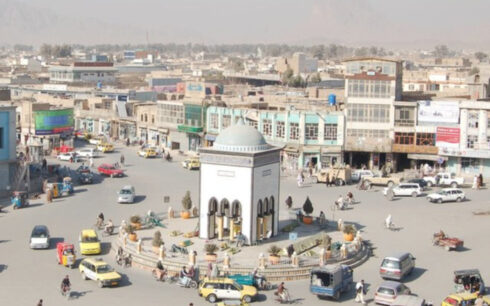KABUL, Afghanistan — Sadiq Khan, Pakistan’s special representative for Afghanistan, arrived in Kabul on Wednesday for his second visit in less than a month, as tensions between Islamabad and the Taliban continue to mount over cross-border militancy, deportations, and trade disruptions.
Khan, who is leading a delegation, said in a post on X that the purpose of the trip is to participate in the long-delayed Afghanistan-Pakistan Joint Chamber of Commerce meeting, which he described as a key step in reviving bilateral trade dialogue.
His visit comes against the backdrop of growing friction between the two neighbors — particularly over the Tehrik-i-Taliban Pakistan (TTP), which Islamabad accuses of operating from Afghan soil, and the prolonged closure of the Torkham border crossing, which has severely impacted commerce.
Earlier this year, Pakistani forces shut down the Torkham crossing for more than two months, citing security concerns. The closure caused millions of dollars in losses for traders on both sides. Pakistani media reported that traders faced daily losses of approximately $3 million during the blockade.
Although trade has since resumed, officials say overall volumes remain lower, driven by persistent security concerns, shifting political dynamics, and tightened controls along the border.
Khan last visited Kabul on March 22, shortly after the Torkham crossing reopened. During that trip, he held meetings with senior Taliban officials, including acting foreign minister Amir Khan Muttaqi and acting commerce minister Nooruddin Azizi. The focus of those talks, according to diplomatic sources, was on border security, regional stability, and pressure on the Taliban to rein in TTP fighters.
The relationship between the Taliban and Pakistan has deteriorated sharply in recent years, punctuated by Pakistani airstrikes in Afghan provinces including Paktia, Paktika, Khost and Nuristan. These strikes have targeted alleged militant sanctuaries, prompting condemnation from the Taliban.
The recent Jaffer Express hostage crisis in Pakistan, which Islamabad blamed on militants allegedly using weapons linked to both the Taliban and India, further inflamed tensions. The Taliban have denied any involvement.
Despite repeated appeals for cooperation, Pakistani officials continue to accuse Afghanistan under Taliban rule of serving as a launchpad for attacks inside Pakistan — a charge Taliban consistently reject.





